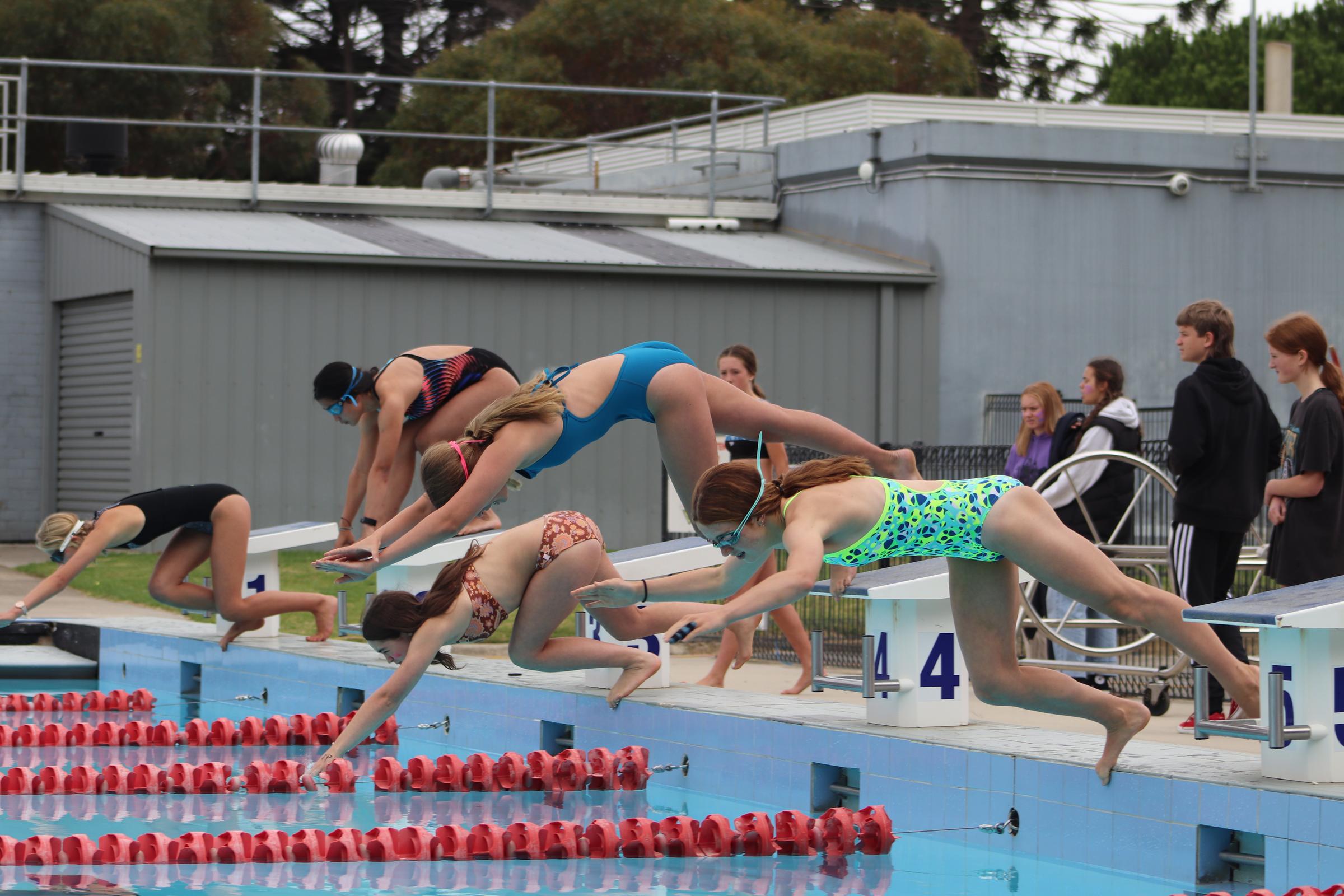PRINCIPAL'S REPORT

Setting High Expectations
Last week we had our first whole school assembly of the year. Due to the current School Operations requirements this needed to be virtual in nature as we cannot gather the whole school indoors in one area yet. We hope to be able to do this soon.
At this assembly, the College Captains and I spoke about setting high expectations for the year and this being a focus for our shared work.
You live up, or down to your expectations and those that are set for you.
We want the best for all young people at SCSC, so we are focusing on ensuring we maintain high expectations.
This does not mean that we expect everyone to be, or achieve, the same. It means that we expect our students to try their best and set aspirational goals to achieve, and we are committed to helping them achieve these goals.
Some strategies that the College has employed and will continue to further develop this year to set and maintain high expectations are:
- Teach about growth mindsets.
- Focus on effort, not excellence.
- Ask students to try again.
- Express unconditional positive regard.
- Set achievable but difficult tasks.
- Identify causes of poor quality work.
- Be a role model and show your expectations by providing examples.
- Ask open-ended questions.
- Give detailed feedback.
- Be consistent.
How can parents and carers support our work on high expectations?
The following is a summary of an article from Melbourne Child Psychology, that can be found HERE in full.
Why you should have high expectations of your children?
Whether expectations are set by teachers or parents — a child can feel confident that that the goals that are set for them can be met. High expectations does not mean high pressure. It needs to be met with support.
The difference between high expectations and high pressure is that high expectations can help people to reach their full potential.
No child actively wants to do badly at school, to disappoint their parents or to ‘fail’ at something they’ve tried to excel in.
So you can work on upping the expectations and lowering the pressure on your children by adopting these attitudes and approaches to home and school life.
1. Adopt a Growth Mindset.
It involves focussing on the value of the process that goes into things, rather than the outcome.
With a Growth mindset, you will have high expectations of the effort that goes into study and learning.
While a fixed mindset may put high pressure on getting good grades.
Support a growth mindset in your children by emphasising the important of hard work — as the key to good achievement, and also as something of value in and of itself.
2. Make expectations clear, realistic and reasonable.
Many kids become overwhelmed by pressure because they don’t know exactly what is expected of them.
Their parents want them to do well at school… but what does this mean?
To get good grades? To top the class? Or to acquire knowledge and skills?
Set achievable expectations for your kids and make sure they know exactly what they are, and how you expect them to achieve them.
This again places the focus on the processes, rather than outcomes.
Clear high expectation: ‘I expect you to study for at least one hour a day.’
Unclear high pressure: ‘I expect you to get a 99 ATAR’.
3. Aim for personal bests and fulfilled potential.
Not every child can get into the top sporting team. Nor can every student get into their first university preference.
But they can still play sport, improve and even excel in it, and they can still find a pathway to their desired degree.
It is reasonable and beneficial to expect fulfilled potential.
But putting high pressure on numbers and ranks is unproductive, and often detrimental.
4. Offer support and encouragement through the process.
Let your kids know that you have faith in their ability; that you believe they are confident and capable.
And that importantly — hard work is what’s needed to get good results.
Offer them whatever emotional and practical support you can, and that they may need, in order to achieve their goals.
This could be offering them a sympathetic ear when they’re feeling stressed.
Or listening to them go over what they learnt in school over dinner.
However, it’s important to be restrained with both reassurance and praise in the face of disappointment.
For example, praising a child to comfort them over a disappointing outcome sends the wrong message.
And one of the best ways you can support your child, boost their confidence, and increase their motivation, is to have high expectations.
The importance of connecting to community.
We had a wonderful day at the College Swimming Carnival which was held on Friday February 18th. We were unable to hold this event in 2021 due to COVID restrictions, we were thrilled to be able to get back to the pool this year and support our students to compete in events, have fun and engage positively as part of the College community.
Whilst swimming is not for everyone, we strive to achieve a high rate of attendance at these whole of school events. If students are not eager to participate in swimming, there are always fun activities that they can engage in such as the diving boards or slides and encouraging their fellow House competitors by cheering from the side lines.
Developing a sense of belonging is crucial to our life satisfaction and mental health. School is a huge part of the lives of our young people, so we seek for them to have a strong sense of belonging and pride as members of the College community.
Participating in whole school events in a more relaxed atmosphere where they can engage with their peers assists in forming positive relationships and connections. These days are also often ones that students remember for years after finishing school.
Enjoy seeing all of the wonderful photos of the carnival that are in this issue of the newsletter.
Congratulations to all of the students who did compete and placed in their events. We look forward to supporting them to engage in the next level of divisional events.
We ask that parents support us to aid our students’ connectedness to school by encouraging participation in all whole school events. The next one on the calendar is the Athletics Carnival on Thursday April 7th.
COVIDSafe measures extension for Term One - message from the Department of Education and Training
We want to thank parents/carers and students for the great job they have done in keeping our school as safe as possible by following important COVIDSafe measures such as mask wearing, physical distancing, ventilation, getting vaccinated and rapid antigen testing.
This has meant that our school has remained open and our students in class. This is a fantastic outcome and a testament to the hard work of parents, carers, students and school staff.
Rapid antigen tests
To keep schools as safe as possible, the Victorian Government has extended the COVIDSafe measures introduced for the beginning of Term 1. This includes extending the availability of free rapid antigen tests (RAT) for screening until the end of term. It is anticipated an additional 24 million RATs will be provided to schools and early childhood settings to continue to support early detection and prevent infection, for use at home.
The need for this program will continue to be monitored, and may end earlier based on health advice. This is great news and will mean we’re able to continue identifying COVID-19 cases as early as possible, reducing the impact on our school and individuals.
Department of Health modelling indicates that in the first two weeks of school returning, the program has already prevented more than 21,000 cases in schools alone. Their modelling indicates, assuming a 75 per cent compliance rate with screening of students, that by continuing RAT screening in schools for the full 10 weeks of Term 1, we will prevent:
- 61,000 COVID-19 infections in children aged 5 to 17
- more than 150,000 COVID-19 infections in the overall community (on average 15,000 per week over 10 weeks, or more than 2,100 per day)
- around 400 hospital admissions.
*The department will continue to supply RATs to our school for your use. We will notify families when these arrive.
Twice-a-week testing continues to be strongly recommended for both students and staff.
Testing will be conducted at home, and students and staff must report any positive result. There is no requirement to report a negative result.+
Ventilation
Improving ventilation is one of the most effective measures to keep education settings safe. 51,000 air purifiers were delivered to schools by Term 1, 2022 to support COVIDSafe settings in schools.
Up to an additional 60,000 air purifiers will be rolled out to schools ahead of winter to supplement natural and mechanical ventilation during the cooler months.
The winter allocation will provide enough purifiers to cover all classrooms, in government schools and low-fee non-government schools based on current enrolments. This includes general purpose classrooms and other specialist classrooms such as art and science rooms.
*Mask rules will remain the same, with students in Grade 3 and above required to wear masks – although they will not be required outdoors.
On behalf of the school, I would like to thank you again for your continued support in helping your child to complete the rapid antigen tests and other COVID Safe measures. As a result of these efforts our school can continue providing a safe environment for students and staff.
Erin Wright,
School Principal
